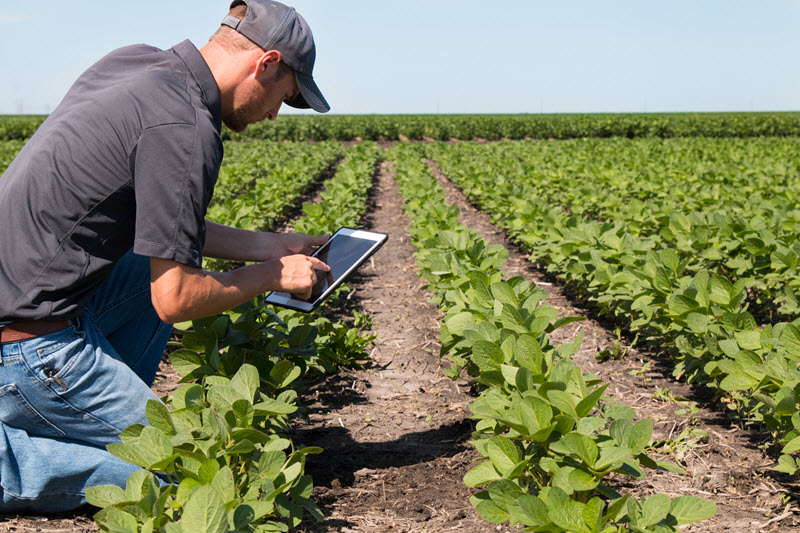Your top 5 questions about farm insurance answered

When it comes to insurance coverage for your farm or ranch, there is no such thing as an out-of-the-box policy. Every farm has its own unique aspects, and as such requires a custom-built insurance policy. It’s important for your peace-of-mind, and the future of your operation to ask questions and ensure your policy is a perfect fit.
Here are the answers to the top five questions our brokers get asked about farm insurance.
1. Will one policy cover my home and farm?
Yes. One policy can be written to cover your home, personal contents, farm buildings, farm contents and equipment - however there are important differences in the coverage.
To draw a line between the two, it is important to determine if the item to be insured is for personal use or farm use. The reason this is important is because farm use is a commercial operation and is not written on a package policy like a home. For example, a tractor is used to farm, but a mower used to cut the lawn around your home is not.
Insurers usually start with home insurance, which is typically a standard policy that includes the house, contents and detached private structures, before moving on to the farm component. Because every farm is unique with many different factors to consider, your farm insurance policy must be customized to your needs to ensure you have adequate coverage.
2. What factors are considered for a farm insurance policy?
When looking at a farm insurance policy, your insurer needs to break down all aspects of your farm and discuss what coverage and limits you require individually.
Unlike the insurance on your home, coverage for a farm outbuilding does not have an automatic percentage of its value allowed for contents – a value needs to be assigned to the contents and noted on the policy. It is also important to note that some items such as semen tanks, equipment, tack and chemicals stored in an outbuilding do not fall under contents coverage and need to be listed separately.
To construct an insurance policy that fits your farm operation, insurers typically break down the coverage you require into the following categories:
- Buildings (e.g. barn, shop, quonset, hired worker dwellings) and contents
- Farm equipment (e.g. tractor, combine, swather, baler, stock trailer) and mobile tools
- Farm income – potential loss of income from livestock and complementary commercial operations such as an on-premise butcher shop or sales of milk and cheese
- Livestock (e.g. beef and dairy cattle, horses, sheep, goats, pigs, chickens)
- Boiler and machinery – broadens coverage to include damage to items such as pressure vessels, 3-phase wiring, computerized equipment and production machinery
- Additional coverage (e.g. feed supply, fodder, bedding, grain, tack, fertilizer, semen tanks, fencing)
3. What might not be covered on my farm insurance policy?
Fencing: While a necessary part of the farm enclosure, fencing is not automatically covered. The cost fluctuates dramatically as does the amount of fencing required for your farm.
Pollution insurance: If you use pesticides and fuel, you will need to consider pollution insurance.
Loss of use coverage: If you lose the use of your equipment through fire or theft, you may not have rental coverage.
Ingestion: If your combine is damaged by a rock or debris that it has “ingested”, it may not be covered.
4. How do I know I have enough liability insurance for my farm?
Exposure to accidents is significantly higher on a farm due to the use of heavy-duty machinery, grain bin storage, and working around livestock.
You can be sued with or without fault by a person who has suffered bodily injury or sustained property damage while on your farm - however you would only be legally responsible if you were found negligent.
Having sufficient limits of liability insurance will not only protect you if you were found to be negligent but will also cover the costs of your defense. You should have at least two million dollars liability insurance, and also have an umbrella insurance policy increasing coverage on your farm and automobile insurance to five million dollars or higher.
If you are sued, notify your broker immediately so your insurance company can defend you.
5. Are “acts of God” covered?
Some people refer to the damage caused by natural catastrophes such as a fire, hailstorm, lightening strike or high winds as “acts of God.” Insurers refer to these events as perils and they are covered by a basic insurance coverage known as “named perils”. Named perils also covers losses caused by theft, explosion, transportation and vandalism to name a few. Named perils only provides coverage if the cause of the loss is specifically listed.
The best coverage for your farm insurance is “broad form” or “all-risk” coverage, which provides coverage for all losses unless they are specifically excluded. Exclusions fall under three categories:
- Better insured elsewhere – For example, if your car is accidentally burned in a barn fire, it is not covered as contents because it should be covered under a separate auto insurance policy.
- Things that don’t happen suddenly and accidentally – For example, if you have a problem with mould or seepage, it is not covered because these issues happen gradually over time.
- Illegal acts – Damage would not be covered for a loss caused by an illegal grow-op.
It is important to discuss all aspects of your farm and ranch with your broker including what may or may not be covered. Your Western Financial Group broker will gladly visit your farm to review your coverage, identify exposures and offer insurance solutions to ensure your operation is protected for generations to come.



